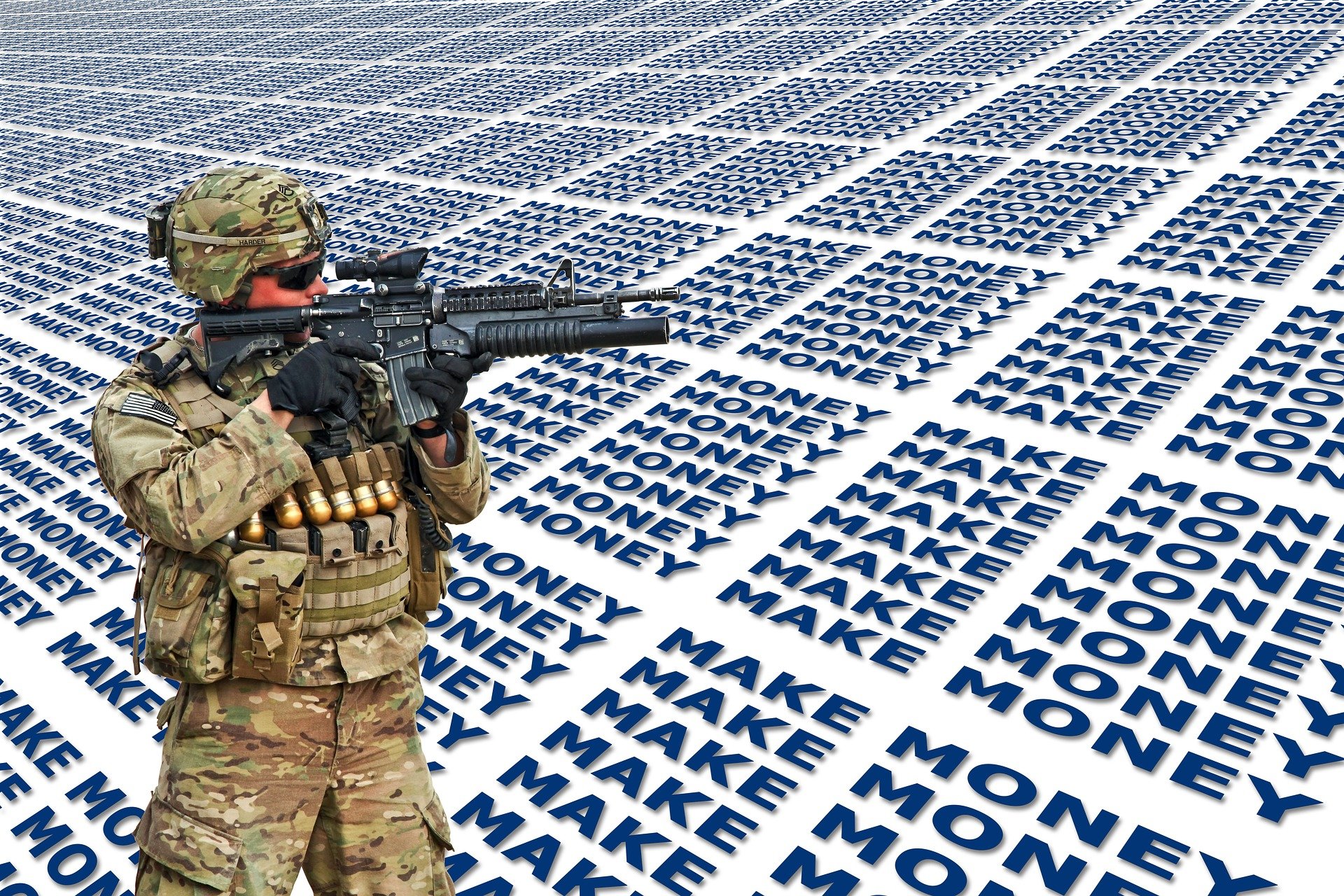
Instead of sharing what I know and think about it, this time, I bring up doubts about the legal and practical aspects of the war in Ukraine. I post questions and seek feedback from readers.
I have strong opinions, as expressed in my earlier texts. However, I cannot ignore the solid opposition to further helping Ukraine. Congress needed months to approve the financial aid. It did not silence voices against assisting Ukraine. They are strong in some media channels, like X, formerly Twitter.
Prompted by my concerns, I signed up for a meeting of lawyers under the title “To Ukraine, With Love? A Debate on U.S. Support of Ukraine.” The event ended up being dull because the moderator promoted the narrow-minded vision of an America-first political narrative. I addressed that in my earlier article, “World War III had already started.”
When preparing for the event, I wrote down the dilemmas caused by the Russian invasion of Ukraine. Lawyers did not provide answers. Can you, the readers, do better?
Is the United Nations a farce?
In the aftermath of WWII, the world witnessed numerous local and proxy wars, yet managed to avert a global conflict. The Soviet Union, now Russia, played a significant role in maintaining this delicate balance. Does Russia’s invasion of Ukraine invalidate the very existence of the UN and the entire network of international laws designed to prevent wars? After all, Russia, as a permanent member of the Security Council, was entrusted with the political power to prevent aggressive wars, exactly like invading Ukraine.
The Security Council met on the evening of February 23, 2022, to discuss how to prevent the war. At that time, it was the morning of February 24 in Moscow, and Vladimir Putin was on TV there announcing the military operations. Could one see it differently than Putin’s showing the middle finger?
So the question: Is the United Nations organization worth keeping?
Can we reform the UN?
The idea behind the UN is noble, and it seems that it has worked for a while, so we might try to keep it. Can it function effectively without revising its statutory rules? I doubt it. Shouldn’t we establish protocols to address the potentially illegal actions by permanent members of the UN Security Council? Can we protect world peace from the possibility that a rogue leader of another permanent Security Council member nation might start a war, as Putin did in 2022? It would mean limiting the sovereignty of the world’s superpowers.
Is this a feasible proposition?
Is the United States in its final decline?
According to many fatalistic texts on Medium or posts on X, it is.
In the interview with Tucker Carlson, Putin compared the U.S. to the Roman Empire in its failing stage. No one knows well what is in Putin’s head. We know he wants Ukraine under Russia’s control. Also, he would like to challenge the U.S.’s worldwide domination. As he sees America weakening, he perceives Russia as filling the void. Could it be that he saw the turmoil in American politics as his moment to fulfill his political aspirations?
Hence, the question is: Are the United States and the Western World in decline, and most likely, the next era belongs to the totalitarian systems, as in Russia and China?
Ukraine and Kuwait
In 1990, Iraq invaded Kuwait. The U.S. built a legal case to start a war to stop an illegal act of war. From the legal point of view, what is the difference between Iraq’s invasion of Kuwait and Russia’s invasion of Ukraine? One can see the practical difference.
Should it mean that international law applies only to petty criminals?
Could Putin achieve his goals peacefully?
In the mingled history of the region, Russia can offer valid territorial claims to Crimea and Donbas. Why did Putin not try a legal path? It could take time, but with a significant Russian-speaking population in those regions, it could work. At least, the path taken ten years ago has been bloody and is still uncertain.
Could Russia win on the legal path? How realistic was it?
Then there is the Budapest Memorandum
Russia, Ukraine, the United Kingdom, and the United States signed the Budapest Memorandum in 1994. In exchange for the guarantees of its territorial integrity and no aggression by the signatories, Ukraine gave up physical possession of its nuclear arsenal stationed there during the Soviet era. The alternative was for Ukraine to become a nuclear power. Now, many say that if Ukraine had taken control of that nuclear armory, Russia would not have dared to invade.
Does this provide a legal ground for nations like Iran to become a nuclear power as well?
Does it mean the policy of nonproliferation of atomic weapons is bogus?
How do international laws define a nation’s control over its airspace?
On February 24, 2024, could Ukraine have asked NATO to protect its airspace? Did Russia have any legal standing with a claim that NATO’s fulfillment of that demand would constitute an act of war against Russia? Russia did not declare war against Ukraine. Ergo, Ukraine should have the legal right to use any means possible, including foreign air forces, to shoot down hostile flying objects.
What are the legal reasons why Ukraine did not get this help?
Can we get peace now?
Donald Trump claims he could do it within a day after returning to the White House. What is the legal framework for any peace deal now? There are many speculations about peace-for-land deals.
The proponents of these solutions forget that we had that kind of deal in 1991 when Ukraine declared independence. Both Russia and Ukraine decided to accept the borders of the former Ukrainian Soviet Socialist Republic, even though some Russians believed that it was benefiting Ukraine and some Ukrainians believed those borders benefited Russia.
Therefore, the problem is not in either side’s territorial concessions. It is in the security provisions that whatever borders are accepted, there will be no force aspiring to change them. Those security provisions would require Russia to have no say in how Ukraine maintains its internal affairs.
Is it possible today?
Should Russian leaders be tried for starting the war?
In 1928, the United States and France initiated the Kellogg–Briand Pact or Pact of Paris, officially the “General Treaty for Renunciation of War as an Instrument of National Policy.” Most nations signed it, including the Soviet Union. The provisions of this act were incorporated into the UN charter. After WWII, this act was the legal ground for the Nuremberg and Tokyo Tribunals.
Can the same legal scheme be constructed to charge Vladimir Putin and other Russian leaders, assuming Russia loses the war?
What to do with Putin?
Lastly, assuming Russia’s defeat, should Putin receive the same treatment as the German and Japanese leaders after WWII or the one Napoleon got after 1815?
Love yourself, be fair to others
The compassion for Ukrainians’ suffering often dominates our conversations about this war. It is human. But as we have heard many times, to love others truly, one must love oneself first. It means that when considering how to respond to the war in Ukraine, you need to ask how any potential outcome might affect you, the people you care about the most, and the nation you identify with.
With an attitude of love, both Russians and Ukrainians deserve the same. Now, when they are fighting an undeclared war, we all hear warnings that we should try to avoid WWIII. I am afraid it is too late; practically, WWIII has already started, but it has not been officially declared yet.
And as you might guess, I am seeking your opinion about that as well.
* * * * *
Readers interested in more details, please check my previous articles documenting my process of learning about the conflict in Ukraine.

 Many tell us what to think. I ask my readers to be skeptical. Question me and others.
Many tell us what to think. I ask my readers to be skeptical. Question me and others. 
